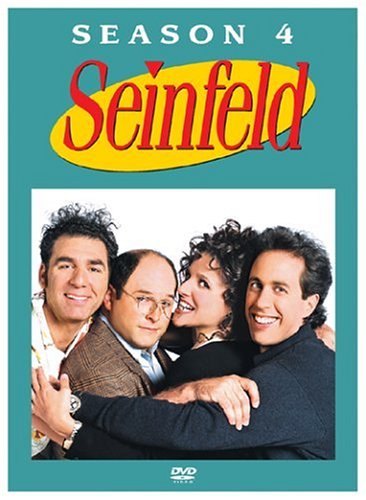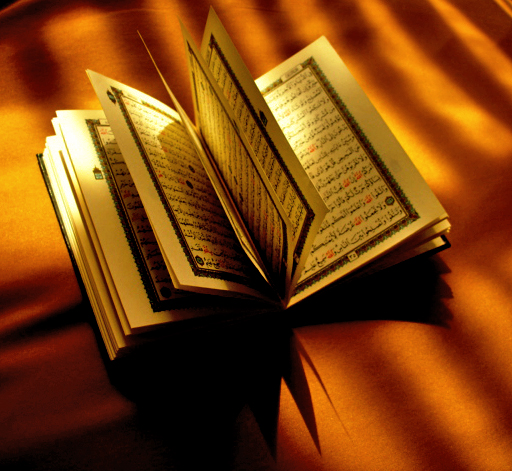 Who says the Germans don't do comedy well? An article in a recent issue of Die Welt -- "Koran-Offensive alarmiert Deutschlands Parteien" shows this not to be so. As I read the article, which tip-toes round the issue of radical Islam in Germany, my mind harkened back to an episode of the television series Seinfeld.
In the "Koran-Offensive" we know what Die Welt is talking about when it mentions Salafists or radical Muslims, but the paper will not say what it means. It sidles around the issue, performing a verbal silly walk that implies radical Islam is un-German, small minded, uncultured and a generally bad thing. Die Welt knows that we know, but is reluctant to say this aloud.
Who says the Germans don't do comedy well? An article in a recent issue of Die Welt -- "Koran-Offensive alarmiert Deutschlands Parteien" shows this not to be so. As I read the article, which tip-toes round the issue of radical Islam in Germany, my mind harkened back to an episode of the television series Seinfeld.
In the "Koran-Offensive" we know what Die Welt is talking about when it mentions Salafists or radical Muslims, but the paper will not say what it means. It sidles around the issue, performing a verbal silly walk that implies radical Islam is un-German, small minded, uncultured and a generally bad thing. Die Welt knows that we know, but is reluctant to say this aloud.
What we do have is a story about the distribution of Korans that is slightly strange. The story arc tells us that freedom of religion and expression is a good thing, freedom to distribute Korans during Holy Week is a bad thing. Or, is it that those doing the distribution are the bad thing? The article is not quite sure.
It is like "The Outing" episode of Seinfeld. Whilst seated at a cafe, Jerry, George and Elaine notice that a young woman in a nearby booth eavesdropping. In a spirit of fun, Elaine speaks to Jerry and George intimating that they are a secret gay couple. The woman reappears shortly thereafter when she arrives at Jerry's apartment on assignment from her student newspaper. During the interview, the interplay between Jerry and George strengthens her belief the two are a gay couple. They then recognize her from the coffee shop and deny they are gay, closing each of their denials with the catch phrase "Not that there's anything wrong with that."
The humor in this episode came from the interplay between George's and Jerry's fear of being taken for homosexuals against their fear of being homophobic. The audience knows the truth about Jerry and George, but takes pleasure in their panic.
The Die Welt article follows the same line in its Good Muslim/Bad Muslim story.
Here is the lede, taken from the English translation provided from Worldcrunch.
After more than 300,000 copies of the Muslim holy book were reportedly distributed in German cities during Christian holy week, major political parties have announced that they will push for closer monitoring of Salafist groups advocating fundamentalist Islam.
The Christian Democratic Union and the Christian Social Union, known as the Union parties, and Alliance ‘90/The Greens, have all declared their concern about the massive free distribution of the Koran launched by Ibrahim Abou Nagie, a Cologne-based businessman and preacher with Palestinian roots. According to Abou Nagie, the 300,000 copies were distributed at information booths and over the Internet, with the purchase of one copy entitling the buyer to another Koran free.
The timing of the action is thought to be a particular provocation for Christians, as thousands of the copies of the Koran were distributed around Good Friday and Easter.
Abou Nagie -- one of Germany's most influential Salafist leaders -- has been charged in Cologne with inciting the public to commit illegal acts and disturbing the “religious peace.” The Federal Office for the Protection of the Constitution has been monitoring Salafist groups, which is why this distribution of religious literature – normally not a cause for concern – is being seen in another light.
The article then shifts to comments from spokesmen from the major political parties, each of whom offered a version of "Not that there's anything wrong with that (Islam)."
 “I view the distribution campaign of free copies of the Koran by Salafists with great concern,” said an SDP spokesman, but added she had "fundamentally nothing against the distribution of religious literature as long as this is not associated with encouraging criminal acts or defamation.” The Green party spokesman told Die Welt. “Distributing the Koran is certainly not forbidden by the law, but this should be monitored very carefully by the police." And a spokesman for the governing CDU/CSU parties called for “an urgent stop” to be placed on the “machinations of the growing radical Salafist movement in Germany.”
“I view the distribution campaign of free copies of the Koran by Salafists with great concern,” said an SDP spokesman, but added she had "fundamentally nothing against the distribution of religious literature as long as this is not associated with encouraging criminal acts or defamation.” The Green party spokesman told Die Welt. “Distributing the Koran is certainly not forbidden by the law, but this should be monitored very carefully by the police." And a spokesman for the governing CDU/CSU parties called for “an urgent stop” to be placed on the “machinations of the growing radical Salafist movement in Germany.”
Germany's churches were described as "maintaining a low profile". An EKD spokesman stated that “Fortunately, in Germany it is not forbidden to distribute religious literature,”but “Of course I hope that in countries where Islam is the religion of the majority that the distribution of Bibles were allowed.” While a Catholic spokesman said the Salafists were not interested in dialogue, and view tolerance and any form of integration for Muslims as toxic.
Only the Greens seemed prepared to speak up. Its spokesman answered the question I had -- why was this a problem -- by saying:
the Koran campaign was “very worrisome, because calls to violence and terror have repeatedly risen from these radical Muslim splinter groups, which is why it is entirely justified for them to be watched by security authorities.”
A Green politician of Turkish descent, Cem Özdemir, added that he had a:
"problem with any religious group that puts their vision of the world above basic law, the Constitution and human rights. So that also goes for the Salafists, who do encourage violence, and whose ideology is a front for Islamic terrorism.” It was apparent, he said, “that the strategy underlying this campaign is to represent themselves as the mouthpiece of Muslims and to propagate what they would claim is the true Islam. The Salafists can’t be allowed to get away with this.”
Moderate Muslim groups said the right things in Die Welt's narrative.
“The Koran is not some PR flyer to be handed out like mass merchandise,” Ayman Mazyek, the chair of the Central Council of Muslims, told the Catholic News Agency. Kenan Kolat, the chair of Germany’s Turkish community, said the action reminded him of Jehovah’s Witnesses. While it was not forbidden to distribute the Koran, Kolat told Die Welt that “the question to be asked are: Are the Salafists acting aggressively? Are they disturbing people?”
And a spokesman for the group giving out 300,000 Korans said?
We don't know as their voice does not appear.
On its face the idea that distributing 300,000 Korans is a threat to public order in an open democracy seems ludicrous. The article asserts those handing out the books are not good, or acculturated westernized Muslims, but does not say what it is about the Koran getting into the hands of Germans that makes it a danger to public order.
This question is made even more curious by the Seinfeld answer given by those opposed to its distribution. "We're against giving out the Koran, not that there is anything wrong with that."
The answer is not the Koran, of course, but the people handing it out. But there is a reticence to make this clear save for the Greens. The BBC's coverage of this story managed to include the objections voiced by political leaders but offered a few words of context that cleared away the absurdist Die Welt story structure.
Last summer, the president of the Office for the Protection of the Constitution, Heinz Fromm, said: "Not all Salafists are terrorists. "But almost all the terrorists we know about had contacts with Salafists or are Salafists themselves."
Is this part of the cultural cringe we see in some quarters -- an ease at criticizing Western norms and culture, but a reticence to speak out about the "other"? Should Die Welt have made it clear at the top of its story the suspected link between Koran distribution and terrorism? Or would that have vilified Muslims as a whole, for the actions of a radicalized minority?
How should the press handle this? Who speaks for Islam?
What say you GetReligion readers?
